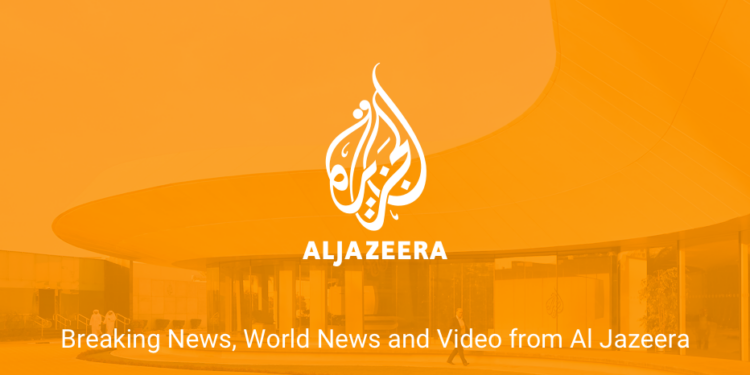What is the risk of a broader conflict resulting from the Israel-Hezbollah standoff?
Israel-Hezbollah Standoff Endangers Gaza Ceasefire Negotiations – Al Jazeera English
In recent news, the ongoing conflict between Israel and Hezbollah has been a cause for concern when it comes to the negotiations for a ceasefire in Gaza. The tensions between the two groups have the potential to further destabilize the region and hinder the progress that has been made towards achieving a peaceful resolution.
What is the Israel-Hezbollah standoff?
The Israel-Hezbollah standoff is a long-standing conflict between the Israeli government and the Lebanon-based militant group, Hezbollah. The two parties have been at odds for decades, with multiple rounds of fighting and hostility between them. The most recent escalation in tensions has raised serious concerns about the impact it could have on the fragile ceasefire negotiations in Gaza.
The situation in Gaza
Gaza, a small Palestinian territory on the eastern coast of the Mediterranean Sea, has been the site of ongoing conflict between Israel and the militant group Hamas. The two parties have engaged in multiple rounds of fighting, resulting in significant loss of life and widespread destruction. Efforts to establish a lasting ceasefire in the region have been ongoing, with international mediators working to bring an end to the violence and create a path towards peace.
The impact of the Israel-Hezbollah standoff on Gaza ceasefire negotiations
The recent escalation of tensions between Israel and Hezbollah has the potential to derail the progress that has been made in the Gaza ceasefire negotiations. The increased hostilities between the two parties could lead to a broader conflict that would further destabilize the region and make it more difficult to achieve a peaceful resolution in Gaza.
Hezbollah’s involvement in the region
Hezbollah, a Shiite Islamist political party and militant group based in Lebanon, has long been a supporter of Palestinian armed groups, including Hamas. The group has provided military and financial support to these groups, and its involvement in the region has been a source of tension between Israel and Lebanon. The current standoff between Israel and Hezbollah has raised concerns about the potential for Hezbollah to become directly involved in the conflict in Gaza, which would have serious implications for the ceasefire negotiations.
The role of international mediators
International mediators, including the United Nations and other global powers, have been working tirelessly to bring an end to the violence in Gaza and establish a lasting ceasefire. The involvement of Hezbollah in the conflict would complicate their efforts and make it more challenging to achieve a peaceful resolution. The international community is closely monitoring the situation and working to prevent further escalation of hostilities.
The need for de-escalation
Given the potential impact of the Israel-Hezbollah standoff on the Gaza ceasefire negotiations, it is imperative that all parties involved take steps to de-escalate the situation. The consequences of a broader conflict in the region would be devastating, and it is in the best interest of all parties to work towards a peaceful resolution. International mediators should continue their efforts to bring an end to the violence and create a path towards peace in Gaza.
the Israel-Hezbollah standoff poses a significant threat to the ongoing negotiations for a ceasefire in Gaza. The involvement of Hezbollah in the conflict would have serious implications for the region and make it more challenging to achieve a lasting peace. All parties involved must prioritize de-escalation and work towards a peaceful resolution to prevent further bloodshed and destruction in the region.
Israel-Hezbollah Conflict Could Disrupt Gaza Ceasefire Negotiations
The ongoing tensions between Israel and Hezbollah are posing a significant threat to the progress of ceasefire talks in the Gaza region. The potential for conflict between these two parties could have far-reaching implications for the stability and security of the entire Middle East.
Escalating Tensions
Hezbollah, a Lebanese militant group, has been engaging in ongoing confrontations with Israel, raising concerns about the potential for a full-blown conflict. The recent exchange of fire across the Israel-Lebanon border has only heightened these concerns, creating a volatile situation that could have serious repercussions.
Impact on Ceasefire Talks
The escalating tensions between Israel and Hezbollah have the potential to derail the fragile ceasefire negotiations in Gaza. Any outbreak of violence between these two parties could shift the focus away from resolving the issues in Gaza, making it even more challenging to achieve a lasting peace in the region.
Regional Implications
The repercussions of a conflict between Israel and Hezbollah would not be limited to these two parties alone. The entire Middle East region would feel the effects of such a development, with the potential for increased instability and violence.
Need for Diplomacy and Restraint
In light of these escalating tensions, it is more important than ever for all parties involved to exercise restraint and prioritize diplomatic solutions. The international community must play a crucial role in de-escalating the situation and preventing any further deterioration of the security landscape in the Middle East.
Moving Forward
As the situation continues to unfold, it is imperative that all stakeholders work towards finding peaceful and sustainable resolutions to the conflicts in the region. The goal should be to avoid further escalation and prioritize the well-being and security of all people in the Middle East.
the escalating tensions between Israel and Hezbollah pose a significant threat to the progress of ceasefire negotiations in Gaza and have the potential to disrupt the stability of the entire Middle East. It is essential for all parties to prioritize diplomatic solutions and exercise restraint to avoid further escalation and violence.





